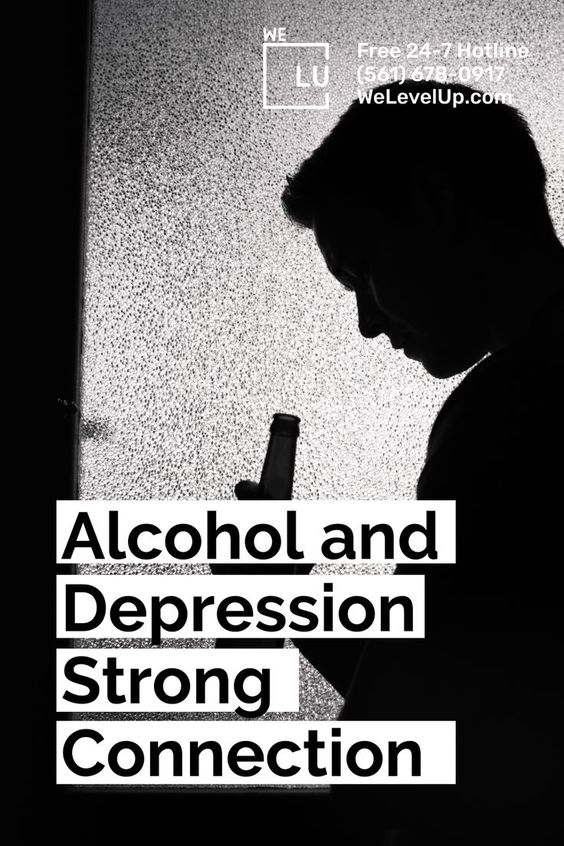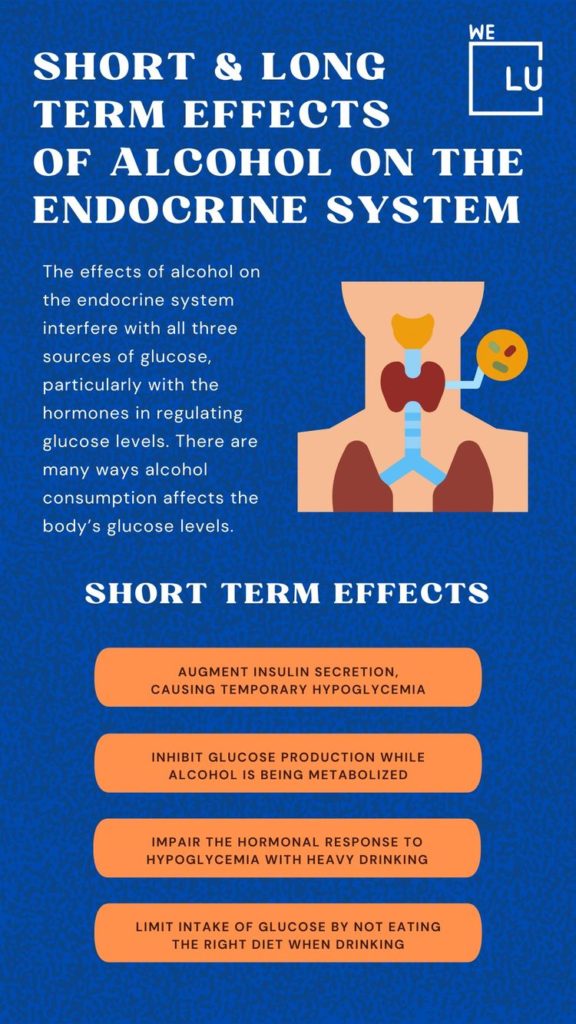What Is Alcohol Abuse?
Alcohol abuse, often known as alcohol misuse, is a serious issue. After tobacco addiction, alcohol abuse is the second most common substance abuse in the US. Some people are affected more severely than others.
It is a pattern of excessive alcohol consumption. It obstructs your usual activities. If you use too much alcohol at once or too frequently during the week, you may be an alcoholic. If you can’t quit drinking, it’s also an issue since it ruins your relationships. You might not be able to function at work or in other facets of your life as a result.
Alcoholism, physical dependence on alcohol, can result from alcohol abuse. Alcohol poisoning can also result from consuming too much alcohol at once. A 12-ounce bottle of beer, a 5-ounce glass of wine, or 1.5 ounces of 80-proof distilled spirits constitute one alcoholic beverage (such as whiskey, rum, or tequila).
You are abusing alcohol when:
- Drinking this much alcohol has negative effects on your relationships, job, health, and the law.
- Drinking more than 14 drinks per week or more than four drinks at any given event (for men)
- You consume more than seven drinks per week or three drinks on any given occasion (for men and women older than 65)
- You regularly consume seven drinks or more than three drinks per occasion (for women)
It is unclear why some people misuse alcohol while others do not, although someone who has a family history of alcoholism is more likely to do so. The chance of the problem in children of parents who struggle with alcohol is multiplied by four.
Skip To:
- What Is Alcohol Abuse
- Alcohol Abuse/Alcohol Use Disorder Facts Sheet
- Symptoms Of Alcohol Abuse
- Alcohol Abuse vs Alcohol Dependence
- Alcohol Abuse Prevention
- Alcohol Abuse Causes
- Alcohol Abuse Health Complications
- How Do You Diagnose an Alcoholic?
- Alcohol Abuse FAQs
- Effective Alcohol Abuse Treatment
- Living With Alcohol Abuse
Learn More:
- Alcoholism Treatment, Signs, Complications & Rehab Programs
- Alcoholic Hepatitis Treatments
- Alcoholic Cirrhosis
- Mixing Prescription Drugs with Alcohol
- Wet Brain Treatment
- Dry Drunk Syndrome
- Symptoms of Alcohol Use Disorder
- Alcoholism Treatment Near Me
- Alcohol Withdrawal Treatment
- Inpatient Alcohol Rehab Center
- Alcohol Withdrawal Brain Fog
- Stabilization Treatment
- Alcohol Detox & Withdrawal
- Alcohol Detox Program
- Alcoholism Treatment Near Me
- Inpatient vs Outpatient Alcohol Rehab Success Rates
- Suboxone Treatment for Alcoholism
- What is Dual Diagnosis Rehab for inpatient alcohol treatment?
- Alcohol and Insomnia
- Alcohol and Aging

Get Your Life Back
Find Hope & Recovery. Get Safe Comfortable Detox, Addiction Rehab & Dual Diagnosis High-Quality Care.
Hotline(844) 597-1011Alcohol Abuse/Alcohol Use Disorder Facts Sheet
Also known as: alcoholism, alcohol dependence, alcohol dependence, alcoholism, alcohol addiction
Alcohol Abuse Overview
A long-term condition characterized by binge drinking and alcohol obsession.
Alcoholism is the inability to manage alcohol consumption brought on by a physical and/or emotional reliance on the substance.
Alcoholism is the inability to manage alcohol consumption brought on by a physical and/or emotional reliance on the substance.
Strong needs or urges to drink alcohol are among the symptoms. People with alcohol use disorders may struggle to regulate their drinking, keep drinking even when it creates issues, or experience withdrawal symptoms when they drastically cut back or quit.
Counseling, such as behavioral therapy, and drugs that lessen the desire to drink are used in treatment. For certain people, medical detoxification is necessary to safely cease drinking. Mutual support groups assist individuals in quitting drinking, controlling relapses, and adjusting to necessary lifestyle changes.
Alcohol Abuse Symptoms
Usually self-diagnosable
Strong needs or urges to drink alcohol are among the symptoms. People with alcohol use disorders may struggle to regulate their drinking, keep drinking even when it creates issues, or experience withdrawal symptoms when they drastically cut back or quit.
Alcohol Abuse Patients Experience:
Whole body: Fever, dizziness, shakiness, hunger, or blackout.
Behavioral: Aggression, agitation, compulsiveness, self-destructiveness, or a lack of self-control.
Mood: Apprehension, euphoria, depression, guilt, or loneliness.
Digestive system: Nausea or vomiting.
Psychological: delirium or fear.
Additional symptoms: Physical drug abuse, coordination issues, slurred speech, and tremor.
Alcohol Abuse Treatments
Treatment consists of therapy and medications
Counseling, such as behavioral therapy, and drugs that lessen the desire to drink are used in treatment. For certain people, medical detoxification is necessary to safely cease drinking. Mutual support groups assist individuals in quitting drinking, controlling relapses, and adjusting to necessary lifestyle changes.
Medical procedure
Alcohol detox treatment is the sudden termination of alcohol consumption in those suffering from alcoholism.
Therapies
Support group, cognitive behavioral therapy, aversion therapy, family therapy, behavior therapy, psychotherapy, group psychotherapy, and counseling.
Medications
Sedative, vitamin, and alcoholism medication.
Self-care
Abstinence- Entirely abstaining from all alcohol use which can assist an alcoholic in becoming a moderate and problem-free drinker.
Alcohol Abuse Specialists
Clinical psychologist
Utilizes conversation therapy as the primary treatment for mental problems.
Psychiatrist
Prescribes medicine as the main treatment for mental problems.
Primary care provider (PCP)
Focuses on disease prevention, diagnosis, and treatment.

Common Symptoms Of Alcohol Abuse
There are many different symptoms one could experience but some of the most common symptoms of alcohol abuse are:
- You feel guilty after drinking.
- You are getting traffic or driving tickets while under the influence of alcohol.
- Your drinking is interfering with your relationships.
- You can’t stop drinking once you start.
- You hide your drinking or your alcohol.
- Your hands are shaking.
- You are unable to perform at work or home when you are drinking.
- Others are telling you that you have a problem.
- You have blackouts and memory lapses after drinking too much.
- Depression.
- You have a drink in the morning to get yourself going after drinking too much the night before.
- You have physically hurt someone else or yourself after drinking too much. This could be due to accidents or violence.
- You feel annoyed by criticism of your drinking.
- You have tried stopping using alcohol for a week or more but can’t make it past a few days.
These symptoms of alcohol abuse can result in various negative effects on your health. Alcoholic cirrhosis, a liver disease, may result from it. It contributes significantly to accident-related fatalities and injuries. If you use alcohol while pregnant, it could harm the health of your developing fetus. It can aggravate the lining of your stomach and result in a bleeding ulcer. Alcohol can also make you gain weight, feel ill or lightheaded, have poor breath, and have acne breakouts on your skin.
Get Help. Get Better. Get Your Life Back.
Searching for Accredited Drug and Alcohol Rehab Centers Near You?
Even if you have failed previously and relapsed, or are in the middle of a difficult crisis, we stand ready to support you. Our trusted behavioral health specialists will not give up on you. When you feel ready or just want someone to speak to about therapy alternatives to change your life call us. Even if we cannot assist you, we will lead you to wherever you can get support. There is no obligation. Call our hotline today.
(844) 597-1011Alcohol Abuse vs Alcohol Dependence
Although they are not the same, alcohol abuse and alcohol dependence are both usually referred to as “alcoholism.” The physiologic dependence on alcohol caused by frequent, heavy consumption is what is meant by alcohol dependence. When alcohol is discontinued suddenly, it causes physical withdrawal symptoms of alcohol abuse such as trembling, nausea, vomiting, delirium, and even seizures. Such heavy drinking is extremely dangerous and, given enough time, can cause cirrhosis, liver cancer, and even death.
Alcohol misuse is more prevalent, and those who abuse alcohol typically don’t experience any physical withdrawal symptoms of alcohol abuse if they stop. Alcohol abuse can take the form of binge drinking, which is when a person regularly consumes high amounts of alcohol or more moderate drinking that is linked to unhealthy behaviors or consequences.
A person who drinks to “self-medicate” for depression, insomnia, etc. is one example. Another example might be someone who, via provocative, hurtful, or obnoxious acts, alienates themselves from family and friends. Serious examples might be risky activities like driving while intoxicated or losing a career or a loved one because of failure to regulate one’s drinking. Even when there aren’t any overt physical signs of alcoholism, alcohol still has cumulative effects on the body, primarily on the liver, which can be quite harmful.
Quantifying how much is too much is challenging. Depending on cultural norms; having one or more drinks per day is regarded as normal and acceptable in some societies. From a physiologic perspective, tolerance to alcohol is influenced by a person’s size, gender, frequency of usage, and other characteristics as well as how their body metabolizes alcohol.
Alcohol Abuse Prevention
If you have a family history of alcoholism, you may have to work harder toward alcohol abuse prevention. Other ways to reduce your alcohol consumption include:
- Talk to your doctor.
- Consider joining a support group made up of others facing the same challenge
- Limit yourself to one drink when by yourself or with friends.
- Avoid spending time with others who abuse alcohol.
- Seek treatment for underlying mental health conditions.
Your doctor may screen for alcohol abuse. The American Academy of Family Physicians (AAFP) recommends screening adults aged 18 years or older for alcohol misuse. Also, AAFP recommends teaching teens between 12 and 17 years old to avoid alcohol.
Alcohol Abuse Health Complications
Your central nervous system is lowered by alcohol. Some people may experience an initial reaction as a boost in energy. But as you keep drinking, you start to feel sleepy and lose control of your behavior.
Drinking too much alcohol impairs your ability to speak and move, as well as key brain regions. Even a coma or death may result from binge drinking excessively. This is especially concerning if you’re taking drugs that also have a depressant effect on brain function.
Alcohol psychosis, often referred to as alcohol hallucinosis, describes psychotic symptoms that a person may experience after or right after consuming large amounts of alcohol.
Schizophrenia cannot be caused by alcohol consumption, however, alcohol psychosis can produce symptoms that are similar. The condition can produce symptoms that develop swiftly and disappear in a matter of days to weeks, and it frequently mimics schizophrenia. Although it is a very uncommon disorder, alcohol psychosis can be brought on by alcohol intoxication, alcohol withdrawal, and chronic alcohol abuse.
People who can control their drinking have a fair probability of never relapsing into this type of psychosis.
Short-term and long-term complications can break down the health-related complications of alcohol abuse. Short-term complications include increased blood pressure, irregular heartbeat, and possible overdose. Long-term effects can include heart disease, wet brain, lung disease, and liver disease.
The National Cancer Institute has also noted a connection between alcohol consumption and certain types of cancer, including head and neck cancer, esophageal cancer, liver cancer, breast cancer, and colorectal cancer. Additionally, alcohol dependence can lead to withdrawal complications.
Alcohol Abuse Causes
People abuse alcohol for many reasons. It may be due to social pressure, a desire to relax, a coping mechanism for anxiety, depression, tension, loneliness, self-doubt or unhappiness, or a family history of abusing alcohol.
How Do You Diagnose An Alcoholic?
Many people who are abusing alcohol will hear from family and friends that they have a problem. Sometimes, the question, “how do you diagnose an alcoholic?”, can be difficult for someone to answer. Generally, doctors believe a person is using alcohol when:
- Repeated alcohol use leads to legal problems
- Repeated alcohol use puts you or someone else in physical danger (driving, operating machinery, mixing alcohol and medicine, drinking alcohol while pregnant)
- Frequent alcohol use harms your relationships
- Repeated use of alcohol interferes with your responsibilities at work, home, or school

World-class, Accredited, 5-Star Reviewed, Effective Addiction & Mental Health Programs. Complete Behavioral Health Inpatient Rehab, Detox plus Co-occuring Disorders Therapy.
CALL(844) 597-1011End the Addiction Pain. End the Emotional Rollercoaster. Get Your Life Back. Start Drug, Alcohol & Dual Diagnosis Mental Health Treatment Now. Get Free No-obligation Guidance by Substance Abuse Specialists Who Understand Addiction & Mental Health Recovery & Know How to Help.
Alcohol Abuse FAQs
What is the connection between PTSD and alcohol abuse?
Alcohol abuse makes it more difficult to manage stress and memories of trauma. Some PTSD symptoms can worsen when someone drinks alcohol or when they become intoxicated (drunk). Examples of signs that can deteriorate include:
-Feeling emotionally numb and shut off from others.
-Feeling agitated, irritable, melancholy, or anxious.
-Feeling as if you are constantly on alert.
What is the connection between alcohol abuse and blindness?
Permanent blindness or vision loss is one of the scariest effects of drinking on the eyes. According to research, long-term heavy alcohol consumption increases the chance of developing conditions such as age-related macular degeneration and visual neuropathy. Although the exact etiology is unknown, a vitamin A deficiency brought on by alcohol may be to blame.
Although it’s uncommon, alcoholism can cause blindness. Unhealthy levels of alcohol intake can cause a loss of color vision, a thinning of the cornea, weakened eye muscles, and a decrease in peripheral vision, all of which can result in permanent vision loss.
What is the difference between alcohol abuse and alcoholism?
Alcohol abuse differs from alcoholism primarily in that alcoholism relates to a legitimate medical illness, whereas abuse does not. Alcohol abuse is possible without having an alcohol use disorder, however, someone who is considered to have alcoholism will meet the diagnostic criteria for an alcohol use disorder.
Why are nerve cells destroyed by alcohol abuse?
Alcohol abusers who consume excessive amounts of alcohol may have tingling in their extremities because the alcohol has damaged their peripheral nerves. Signals are sent from the brain, spinal cord, and body through these nerves, which link to the brain. Alcoholic neuropathy is a disorder that impairs the nerves’ capacity to adequately transfer messages. Most individuals with an alcohol use disorder diagnosis are thought to also have some degree of alcoholic neuropathy.
Alcoholic neuropathy can cause a diminished sensation or mild pain, which may not seem like a major concern. However, it could also have additional detrimental effects, like:
-Frequent injuries.
-Infections.
-Reduced motor and sensory abilities.
Experience Transformative Recovery at We Level Up Treatment Centers.
See our authentic success stories. Get inspired. Get the help you deserve.
Start a New Life
Begin with a free call to an addiction & behavioral health treatment advisor. Learn more about our dual-diagnosis programs. The We Level Up Treatment Center Network delivers recovery programs that vary by each treatment facility. Call to learn more.
- Personalized Care
- Caring Accountable Staff
- World-class Amenities
- Licensed & Accredited
- Renowned w/ 100s 5-Star Reviews
We’ll Call You
Effective Alcohol Abuse Treatment
If you are the one suffering from alcohol abuse, the first step is recognizing you need help. Many studies show that people struggling with alcohol abuse can benefit from some form of treatment. However, everyone is different. Not all treatments work the same for every person. The sooner a person seeks treatment, the better the outcome.
Behavioral therapy can be used to treat alcohol abuse. Alcoholism treatment can take the form of outpatient or inpatient rehabilitation, support groups, counseling, or a combination of the two. In addition, some prescription medicines can treat alcohol abuse by helping people stop or reduce their drinking. However, as with all drugs, some might cause side effects.
Once you have found an effective treatment, it’s essential to stick to that treatment. Also, it’s helpful to avoid situations that involve a lot of alcohol.
Living With Alcohol Abuse
Knowing your triggers for drinking helps you manage your alcohol usage. For instance, spending time with people who drink will make it challenging for you. If you don’t have a friend or counselor to talk to, you might be going through a stressful or unhappy time in your life. You might turn to alcohol to help you cope as a result of this.
If you do not admit that you need help, dealing with your alcoholism will continue to be difficult. You’ll keep putting your relationships, career or school, and safety in danger.
Alcohol Abuse Advice For Friends and Family Members
Giving care to someone who struggles with alcoholism can be quite stressful. Finding a means to look after yourself is crucial while you work to support your loved one. Seeking support from others, such as friends, family, the community, and support groups may be beneficial. Consider getting professional assistance for yourself if you notice that you are starting to experience depression or anxiety on your own. Keep in mind that the decision to manage his or her sickness ultimately rests with your loved one.
At the We Level Up treatment center network, a dedicated trained team provides world-class care with round-the-clock medical professionals available to help you cope. All are working as a team to provide you with the optimum alcohol abuse information throughout your treatment. Make this your opportunity to reclaim your life. Call today to speak with one of our treatment specialists. Our specialists know what you are going through and will answer any of your questions.
Your call is private and confidential, and there is never any obligation. Choose from our select premium alcohol treatment centers.

We Level Up Fort
Lauderdale
Premier Behavioral Health Treatment Center
- Inpatient mental health treatment center
- Therapy for depression, anxiety, trauma, bipolar disorder, PTSD, and more.
- Dual diagnosis rehab programs available

West Palm Beach
(coming soon)
Premier Behavioral Health Treatment Center
- Inpatient mental health treatment center
- Therapy for depression, anxiety, trauma, bipolar disorder, PTSD, and more.
- Dual diagnosis rehab programs available

We Level Up
California
Drug & Alcohol Addiction Treatment Center w/Detox
- Inpatient addiction rehab center w/medical detox
- Addiction treatment and detox for alcohol, benzo, heroin, opioid, and more.
- Secondary mental health treatment available as part of our dual diagnosis programs.
Sources
[1] NIAAA – www.niaaa.nih.gov/publications/brochures-and-fact-sheets/understanding-alcohol-use-disorder
[2] MedlinePlus – medlineplus.gov/alcoholusedisorderaud.html
Florida Health – Florida Health (floridahealth.gov/index.html)
National Library of Medicine – National Library of Medicine (ncbi.nlm.nih.gov/)
USA.gov – USA (usa.gov/)
Centers for Disease Control and Prevention – (2021) Centers for Disease Control and Prevention (cdc.gov/)
U.S. Department of Health & Human Services – (2019). U.S. Department of Health & Human Services (cdc.gov/)
National Institute on Drug Abuse – (2018). National Institute on Drug Abuse (nida.nih.gov/)
Center for Substance Abuse Treatment – (2015). Center for Substance Abuse Treatment (samhsa.gov/)
Find Treatment – Find Treatment (findtreatment.gov/)
NIAAA – NIAA (niaaa.nih.gov/alcohol-health/overview-alcohol-consumption/moderate-binge-drinking)
News In Health – NIH (newsinhealth.nih.gov/2014/09/drinking-excess)
Stahre M, Roeber J, Kanny D, Brewer RD, Zhang X. – Contribution of excessive alcohol consumption to deaths and years of potential life lost in the United States. Prev Chronic Dis 2014;11:130293.
Centers for Disease Control and Prevention – Alcohol-Related Disease Impact Application website.
Sacks JJ, Gonzales KR, Bouchery EE, Tomedi LE, Brewer RD. – 2010 National and State Costs of Excessive Alcohol Consumptionexternal icon. Am J Prev Med 2015; 49(5):e73–e79.
U.S. Department of Agriculture and U.S. Department of Health and Human Services. – 2020 – 2025 Dietary Guidelines for Americansexternal icon. 9th Edition, Washington, DC; 2020.
Esser MB, Hedden SL, Kanny D, Brewer RD, Gfroerer JC, Naimi TS. – Prevalence of Alcohol Dependence Among US Adult Drinkers, 2009–2011. Prev Chronic Dis 2014;11:140329.
World Health Organization. – Global status report on alcohol and health—2018external icon. Geneva, Switzerland: World Health Organization; 2018.
Smith GS, Branas CC, Miller TR. – Fatal nontraffic injuries involving alcohol: a metaanalysisexternal icon. Ann of Emer Med 1999;33(6):659–668.
Greenfield LA. – Alcohol and Crime: An Analysis of National Data on the Prevalence of Alcohol Involvement in Crime pdf iconexternal icon [PDF – 229 KB]. Report prepared for the Assistant Attorney General’s National Symposium on Alcohol Abuse and Crime. Washington, DC: U.S. Department of Justice, 1998.





